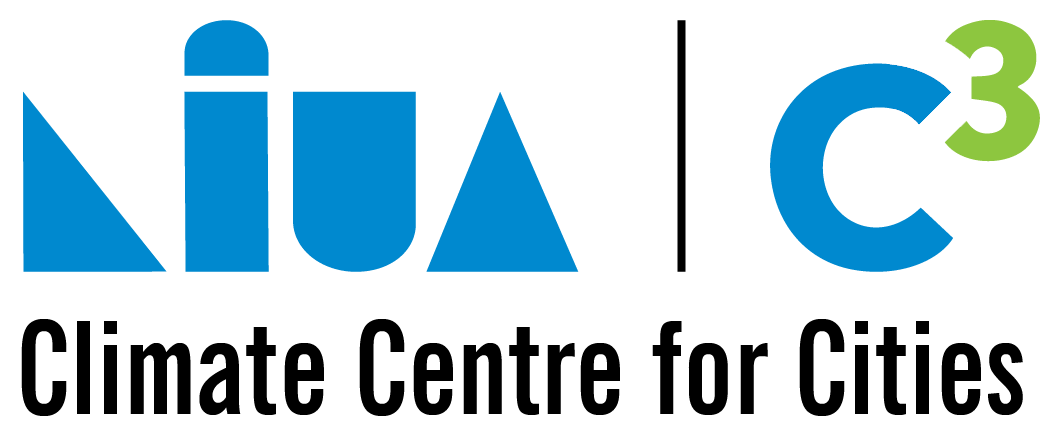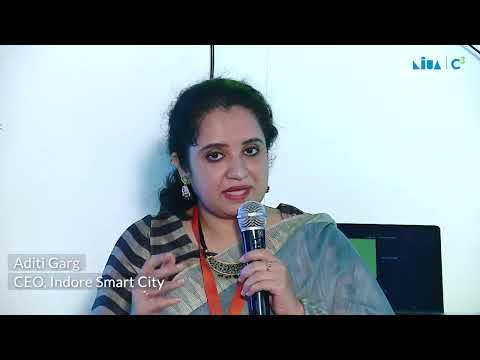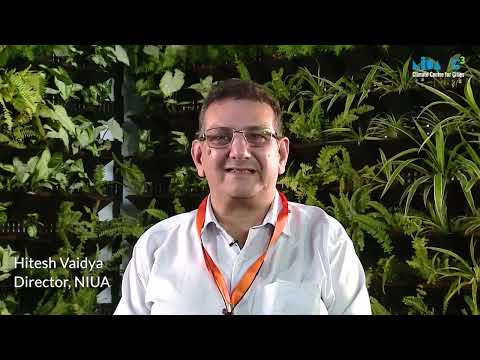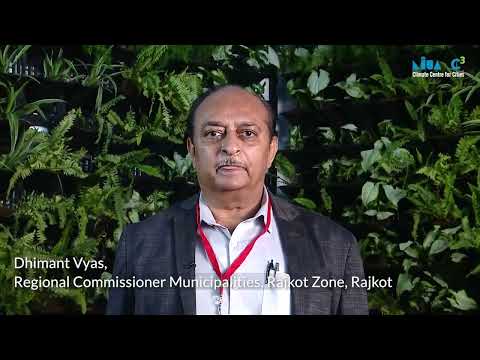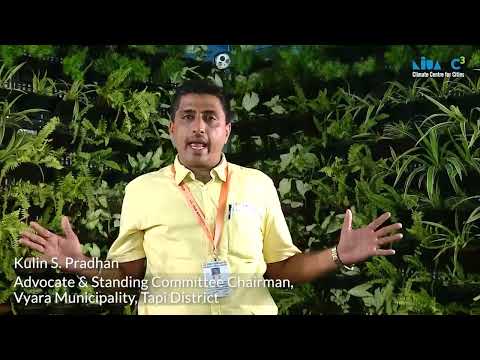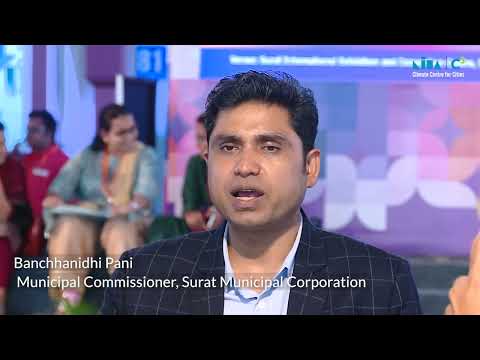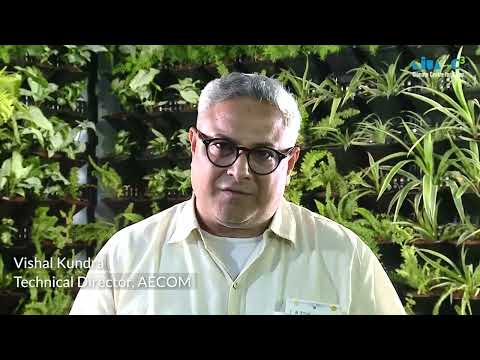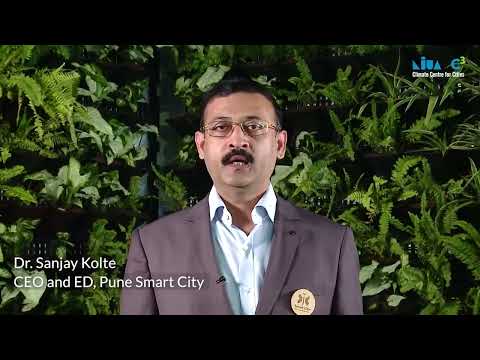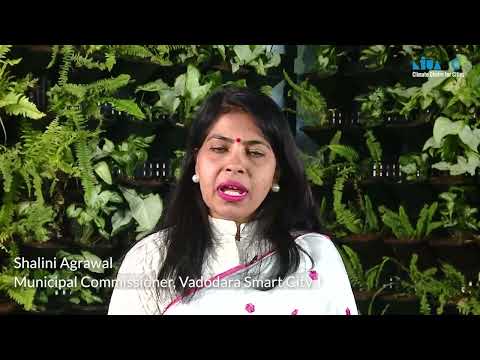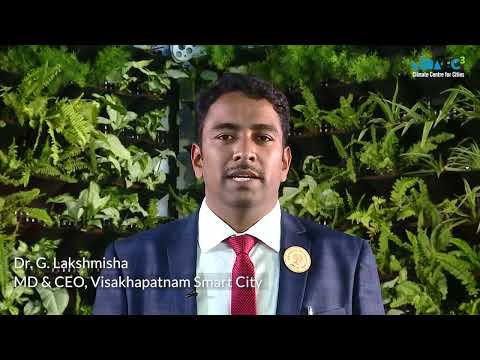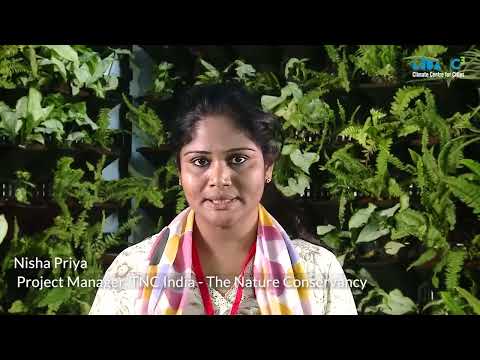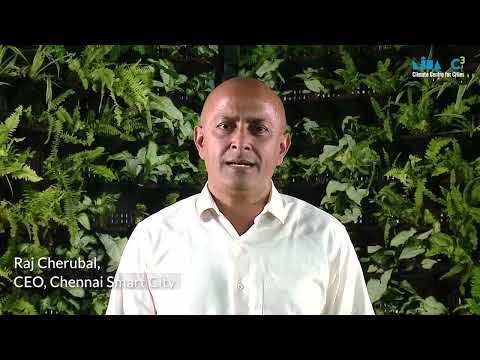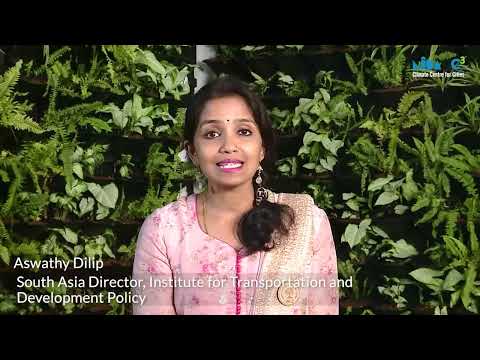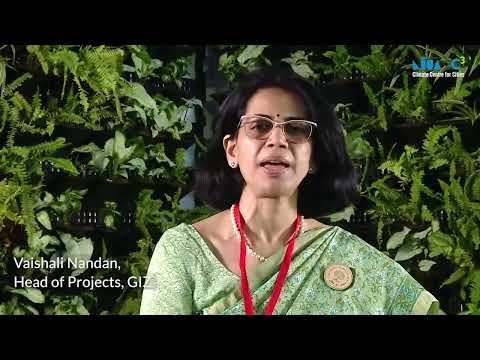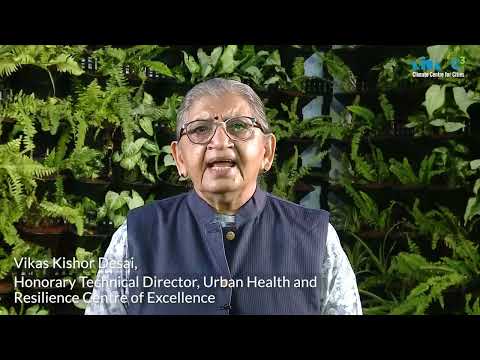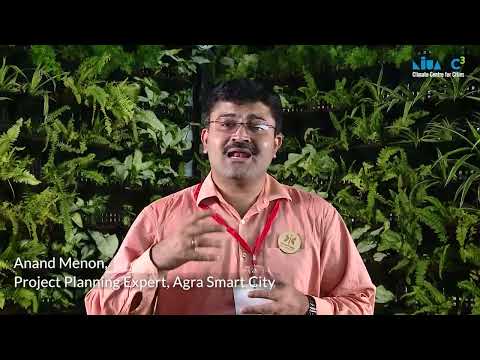CLIMATE CAFE
CLIMATE CAFE
Smart Cities, Smart Urbanization Conference
18th-20th April 2022, Surat
Climate Cafe was a pavilion organized by the Climate Centre for Cities at the Smart Cities, Smart Urbanization Conference, Surat. The pavilion housed events, panel discussions and open houses. It acted as a platform for city officials to learn, discuss, visualize and share their good practices and learnings, and understand how to communicate their impact better to achieve scale and sustainability. The Cafe applied a climate lens to the SCSU conference. It embedded awareness among participants to pave the way for India’s forward-looking, climate-proof, inclusive, and integrated urban transformation.
1200+
Visitors
90+
Cities
14
Activities
CSCAF 3.0
The ClimateSmart Cities Assessment Framework 3.0 is being launched for participating cities to learn their progress and for other cities to join the assessment. CSCAF 3.0, developed by C-Cube, NIUA, will assess the cities through a framework that measures cities’ capacity to mitigate and adapt to climate change.
The case clinics were discussions designed to stimulate a shared dialogue on urban resilience and local climate action. Through the clinics, multiple stakeholders had the opportunity to interact on an equal footing in voicing their views and opinions on various facets of climate mitigation and adaptation.
Collective Carbon Trading (Indore Smart City) - The success of Indore city in leveraging carbon credits for generating revenue has established the feasibility of environment-friendly projects from a financially beneficial perspective. This clinic discussed how Indian cities can leverage carbon credit trading and will encourage peer learning in cities.
Climate Adaptation Plan (WRI) - Climate Adaptation Plan will empower cities against climate change impacts and facilitates decision-making, planning, and adaptation strategies. This clinic discussed how cities can embed climate resilience within their urban planning and governance.
Public engagement (NIUA) - Sensitization is crucial to promote climate actions and communicate climate-related risks and challenges. This clinic will discuss how cities can enhance their communication and awareness campaigns to promote climate actions.
Multi-stakeholder engagement (ITDP) - Collaboration across sectors and among various stakeholders is crucial for building climate actions and strong partnerships can unlock the potential of climate innovation. This clinic discussed the approaches to strengthen multi-stakeholder engagement in cities to address climate change.
Climate Actions: Insights & Good practices (NIUA) - Developing new approaches to reduce the climate impacts requires learning from the best practices. The clinic will create a space for participants to discuss the insights and best practices for meaningful frameworks to support resilient and livable cities.
Climate Initiatives of Surat Municipal Corporation - The clinic provided Surat city a platform to showcase their work on smart cities and climate actions in sectors like water supply, sewerage, solid waste management, water recharging, renewable energy, street lighting, industrial cluster developments etc.
Climate Success Stories from Cities (NIUA) - Generating new ways to approach climate-related challenges in cities through innovative ideas is the need of the hour. This clinic discussed how Indian smart cities have successfully implemented climate projects by acknowledging their key role and building coordinated efforts.
Donor Meets allowed city officials to interact with donor agencies and understand the funding mechanisms and processes involved to enable future cooperation for climate investments. The meetings were a half-day curated session, organized on a one-to-one basis, based on the requirements indicated by the cities and donor agencies.
Heat and Health (PHFI) – The Flemish Institute for Technological Research (VITO - coordinator), AVIA-GIS, and the Public Health Foundation India-Center for Environmental Health (PHFI-CEH) have partnered up in the project “Climate-health risk management in India” (CHARISMA), where a climate and health information service for India is being developed for planning city-level adaptation response for heat and vector-borne diseases. This meet enabled a discourse on how to develop a climate and health information service for cities.
Urban Act (GIZ) - The Urban Act project supports a transformation toward low-carbon and resilient urban development in Asia Pacific countries (India, Philippines, Thailand, China, and Indonesia) and contributes to the implementation of NDCs and the 2030 Agenda in the region. This meet will showcase the objectives of the project which include generating experiences and knowledge for vertical integration of climate action at national, sub-national, and city levels.
Austrade (funding water projects)- Austrade offers a bilateral water security initiative that will aim to strengthen the partnership between Australia and India through cooperation on urban water resource management and governance. This meeting was an opportunity for cities to interact with Austrade, and understand the funding mechanisms and processes involved to enable future cooperation for climate investments.
CITIIS Interaction- CITIIS is a joint program of MoHUA, AFD, KfW, European Union and NIUA aimed at building innovative program processes and sustainable urban infrastructure through dedicated financial and technical assistance. During the session, Smart City SPV CEOs will share the innovative approaches taken-up in their respective cities under CITIIS 1.0 followed by a presentation on CITIIS 2.0 (second phase of the program to be launched in June, 2022).
Climate Data Observatory
The Climate Data Observatory (C-DoT) is an online platform to empower city officials, practitioners, and other stakeholders with climate data, visualizations, and resources needed to inform and accelerate climate actions. The observatory was showcased at the Climate Cafe, equipped with touchscreens that offered the participants an immersive data experience.
Mayors' Messages
Mayors from all round world such as from Houston, Boston, Des Moines, Pune, Karlsruhe, Malmo, Ulm, and Leuven have showcased their city level actions focused on building the climate resilience in various sectors such as green cover, transportation, air quality, solar and renewable energy, water management, waste management.
The Knowledge Products exhibit showcased technical documents of the ClimateSmart Cities Assessment Framework 3.0, City Readiness Report 2.0, 28 training and capacity building modules aligning with 28 indicators of CSCAF 2.0 and various capacity building modules and collaterals from collaborators and partners. The exhibit allowed many city officials to understand the knowledge products and ways to leverage them in implementing climate actions.
ClimateSmart Cities Vision Board
The ClimateSmart Cities Vision Board is a hands-on activity aimed at understanding the priority climate actions envisioned by the Indian cities. City officials participated in the ClimateSmart Cities Vision Board activity to map their actions for climate mitigation through an interactive thread exercise. This visioning activity allowed a holistic view of Indian cities’ climate aspirations to enable sustainable urban development by 2030. A total of 12 climate actions were marked on the board for the cities to choose.
Photography Exhibit
The exhibit celebrated the most powerful, provocative, and poignant images from around the country to align the visitors’ minds to the challenges and solutions associated with Urban Climate Change and Sustainability. 40 photographs that qualified for the final round of the National Photography Competition on Climate Change were exhibited.
Video Stories
The video booth at the climate pavilion will help capture climate impact and action stories from the participants. The attendees can narrate their experience of shocks and stress and what they have done or are currently undertaking to build climate resilience to them, their community and their city.
The Virtual Reality Experience space enabled participants with experiential learning and allowed them to explore different environments and weather scenarios. The experience was designed to create awareness among participants on climate change and sustainable actions. The experience includes technological features that heighten the experience for viewers: three-dimensional graphics and ambisonic audio that positions sound around the user.
The virtual experience options included the documentaries on disaster management during the Chennai Flood, underwater experiences, and cold desert regions of higher Himalayas in which participants were experienced by walking through it, participants were placed in the center of the environment and getting closer to the flora, fauna, and people have been threatened by the Climate change.
Tree of Life
The tree of life is conceptualized as a visual metaphor wherein the tree and its growth helped participants realize the relevance of climate change and to share the climate actions they would want to see in the future. The participants wrote their climate aspirations on a chit and stuck it to the freely flowing tree of life.
Sanitation Board Game
The Sanitation Capacity Building Platform, NIUA developed a board game for the planning of sanitation services. The board game introduced an interactive mode of learning and creative visualizations of urban sanitation challenges and solutions based on real-world scenarios from India. The city officials, experts, innovators, and students participated in the game.
Pre Event Activity
Climate Change Awareness Campaign

Contact Us
1st and 2nd Floor, National Institute of Urban Affairs
India Habitat Centre Lodhi Road New Delhi-110003
Please Call Help Desk at 011-411-86699
Monday - Friday, 9:00 AM - 5:00 PM
Please write to us at c-cube@niua.org

